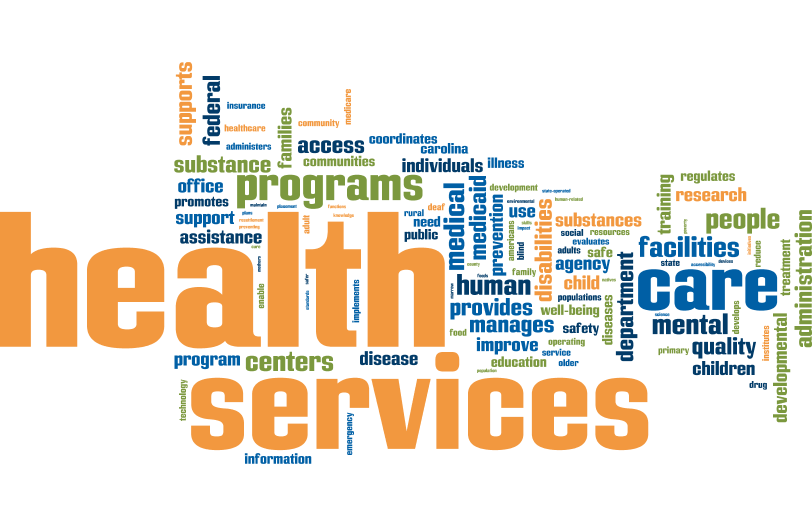


NCIOM has compiled a list of state and federal health departments and divisions, along with short descriptions of their roles.
North Carolina Department of Health and Human Services (NC DHHS) – supports and coordinates the delivery of health- and human-related services for North Carolina’s population. NC DHHS is made up of 30 distinct divisions and offices.
Division of Aging and Adult Services (DAAS)– plans, administers, coordinates, and evaluates activities and programs for older adults, providing training and demographic and statistical reports to support those programs and services.
Division of Child Development and Early Education (DCDEE) – increases access to child care for families and children throughout North Carolina and implements quality standards for child care.
Division of Health Benefits (DHB) – implements and administers the proposed changes to the state’s Medicaid program. Once the transformations of Medicaid is complete, DHB will take on the duties and functions of the Division of Medical Assistance, which will be eliminated.
Division of Health Service Regulation (DHSR) – ensures people are receiving safe and appropriate care in medical facilities, mental health facilities, adult care facilities, and local jails, as well as through emergency medical services. DHSR also regulates the construction of medical buildings.
Division of Medical Assistance (DMA) – manages the state’s Medicaid and Health Choice programs.
Division of Metal Health, Developmental Disabilities, and Substance Abuse Services (DMHDDSAS) – coordinates services for individuals with intellectual and developmental disabilities, mental illness, and substance use disorders.
Division of Public Health (DPH) – promotes community health through disease prevention, health services, and health promotion programs.
Division of Services for the Blind – offers services that assist the blind, deaf-blind, and visually impaired search for employment and/or maintain a job.
Division of Services for the Deaf and Hard of Hearing – provides information, tools, and skills that enable deaf and hard of hearing North Carolinians effectively communicate and access the resources they need.
Division of Social Services (DSS) – provides direct services to reduce poverty, family violence, and exploitation in North Carolina. County DSS offices support services including foster care, adoption, food and nutrition services, and Work First Cash Assistance.
Division of State Operated Healthcare Facilities – supervises and manages state-operated health care facilities treating people with mental illness, developmental disabilities, substance use disorders and neuro-medical needs. These health care facilities include three Alcohol and Drug Abuse Treatment Centers, three regional Developmental Centers, three Neuro-Medical Treatment Centers, three Psychiatric Hospitals, and two Residential Programs for Children.
Division of Vocational Rehabilitation Services – provides support services, including education, transportation, training, job placement, counseling, and assistive technology, to individuals with disabilities.
Office of Rural Health (ORH) – supports programs for rural and underserved communities to improve access, quality, and cost-effectiveness of health care.
Department of Health and Human Services (DHHS) – federal department that manages and supports programs, activities, and services throughout the country that impact the health and well-being of Americans. The department has eleven operating divisions.
Administration for Children and Families (ACF) – manages and supports programs, including the Children’s Bureau, Office of Child Care, Office of Family Assistance, and Office of Refugee Resettlement, that aim to improve the economic and social well-being of families, children, individuals, and communities. ACF is the country’s largest human services organization and has the second-largest budget within the Department of Health and Human Services.
Administration for Community Living (ACL) – advocates for independence, well-being, and health of older adults, people with disabilities, families, and caregivers. ACL promotes strategies and services that enable people to live and fully participate in their communities.
Agency for Healthcare Research and Quality (AHRQ) – serves as the lead federal agency working to improve the safety and quality of the health care system. AHRQ invests in research to determine how to make health care safer, creates and distributes training materials, and develops measures and collects data used to evaluate health care provided throughout the United States.
Agency for Toxic Substances and Disease Registry (ATSDR) – evaluates and assesses the effects of hazardous substances in the environment on public health. ATSDR conducts public health assessments and health consultations, responds to emergency releases of hazardous substances, develops and circulates information, and provides education and training on hazardous substances.
Centers for Disease Control and Prevention (CDC) – works to protect the health, safety, and security of Americans by preventing and responding to health threats, including diseases. CDC tracks diseases globally, promotes healthy and safe behaviors, and uses science and advanced technology to prevent disease.
Food and Drug Administration (FDA) – regulates the safety, sanitation, and labeling of most foods. FDA also ensures drugs and medical devices are safe and effective to use and regulates cosmetics, dietary supplements, and tobacco products.
Health Resources and Services Administration (HRSA) – manages and supports programs to improve the health care of vulnerable populations. HRSA oversees programs that provide services for people who need access to high quality primary care, people with HIV/AIDS, pregnant women and mothers, individuals in need of organ, bone marrow and cord blood donation, and victims of health care malpractice, waste, fraud, and abuse.
Indian Health Service (IHS) – provides health services to American Indians and Alaska Natives, as the primary health care provider for those populations.
National Institutes of Health (NIH) - conducts research to discover and apply knowledge that will enhance health, lengthen life, and reduce illness and disability. NIH researches the causes, prevention, and cure of human diseases, the biological effect of environmental contaminants, mental, addictive, and physical disorders, and the processes of human growth and development. NIH has 27 institutes and centers with different focuses.
Substance Abuse and Mental Health Services Administration (SAMHSA) – established to increase the accessibility of substance use and mental disorder information, services, and research. SAMHSA’s initiatives promote emotional health and wellness, increase access to treatment, support recovery, and increase awareness and prevention.